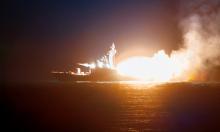Southeast Asian countries make progress against terrorism, U.S. official says
Southeast Asian countries are making progress against terrorism, but there are still doubts as to whether authorities can contain terrorists' strength in the region, a senior U.S. official said Tuesday. Henry Crumpton, the U.S. State Department's counterterrorism coordinator, told reporters in Australia's capital, Canberra, that he was encouraged by meetings with security officials last month in the Philippines, Malaysia, Indonesia and Singapore.
Crumpton, in Australia for bilateral defense meetings, said he was also encouraged by anti-terror successes like the Nov. 9 Indonesian police raid that led to the death of Malaysian citizen Azahari bin Husin, a leader of the Southeast Asian terrorist group Jemaah Islamiyah.
"My guess is that we're holding our own right now in some areas," Crumpton said. "I think we're making progress."
"The bigger challenge now, what I'm less certain of, is the strategic direction of enemy forces," he said. "Are the enemy, al-Qaida and Jemaah Islamiyah, recruiting more people than we are collectively catching or killing?"
Crumpton predicted that the world would become more exposed to terrorism in the coming decades due to greater dependence on information technology and global trade, and as terrorists become faster and more lethal.
"I think we're going to be increasingly vulnerable, the civilized world," he said.
Regarding Southeast Asia, Crumpton said key issues for Southeast Asia include the Malaysia-brokered peace deal between the rebel Moro Islamic Liberation Front and the Philippine government, as well as moves to ease Muslim-Christian tension in Indonesia's Sulawesi province.
"You look at the southern Philippines and the Sulawesi scene," he said. "That is a major issue, perhaps the major issue, right now in Southeast Asia, because there the enemy have the opportunity to gather and train and build cohesive groups and from there deploy outward."
He said the Philippine government was acutely aware of the threat in the country's south, and was working closely with allies including the Unites States to overcome it.
"They'll acknowledge that there's a long way to go," Crumpton said. Crumpton, who assumed his post in August after spending years with the Central Intelligence Agency, predicted that the fight against terrorism would be won because of regional cooperation, which will became increasingly vital, reports the AP. I.L.
Subscribe to Pravda.Ru Telegram channel, Facebook, RSS!




